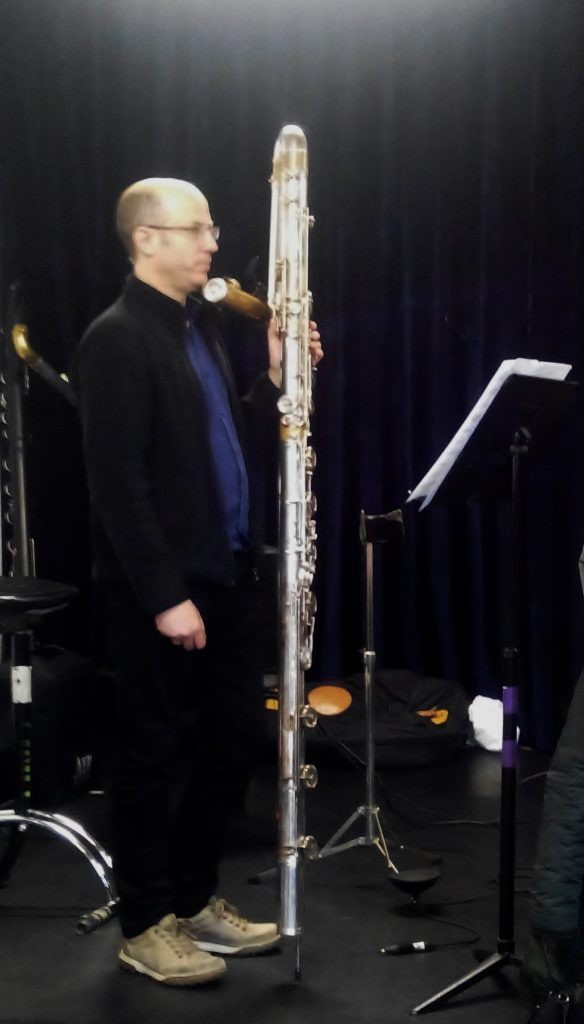'Many opera productions still assume a nineteenth-century vision of the world,' says German composer Moritz Eggert (1965) in the podcast below. 'But art must be relevant to our own times; the answers of then are not the answers of now. Our current problems are largely rooted in our colonial past, in our exploitation of other countries and peoples.'
Commissioned by the Opera Forward Festival, he composed a new opera, Caliban, named after the eponymous character in The Tempest by Shakespeare. But although power and powerlessness play a major role in this, he wants to avoid an overly direct link with current events. 'The theme of the victim-offender relationship is much more universal and affects us all. Caliban develops from someone who is oppressed, to someone who becomes an oppressor himself.'
Lyricism and emotion
Eggert wants to write music that touches people. In modern operas, he says, characters are often used more as symbols of an idea than as flesh-and-blood people. He calls melody almost the most important aspect of music and unabashedly puts lyrical vocal lines in the mouth of the 'monster' Caliban. 'Caliban is full of music and even full of love. He constantly switches between the low baritone register and his falsetto. This illustrates how he slowly loses his innocence.'
'Prospero is a spoken role because the monarch has long since lost his innocence. He no longer has the ability to sing. In a way, he makes Caliban his equal, and at the end of the opera, he too loses his melody. He recites only on one and the same pitch. Incidentally, I paired Caliban with a contrabass flute, which underlines his earthiness.'

Misfits
We also recognise the theme of deformed outcasts in his earlier operas, such as Freax and Die Schnecke. 'That theme interests me, not because I see myself as a freak, but because modern music is often considered extravagant and strange. Somehow, as a living composer, you always have to defend yourself.'
Inclusive music
Eggert writes what he calls 'inclusive music', in which modern dissonance, jazz, folk music, Renaissance polyphony and pop form a natural alliance. 'My inspiration was Bernd Alois Zimmermann, an often misunderstood composer. That mixing of styles does not stem from a postmodern penchant for pleasing audiences, but is completely authentic. It presents itself from within the notes themselves.'
Eggert wrote his hour-and-a-half-long opera for the Asko Schönberg, three singers and a speaking voice. I attended a rehearsal on Monday 20 March and spoke to him afterwards for a podcast.
Listen to the whole conversation here (in English).
